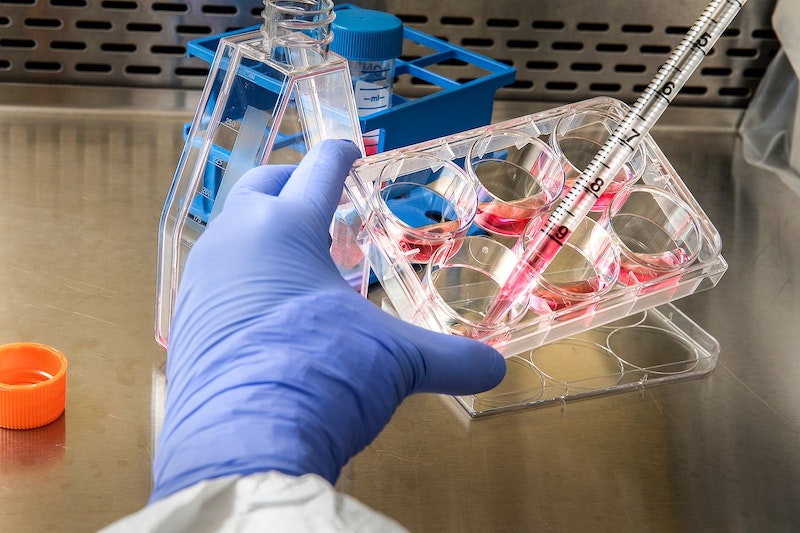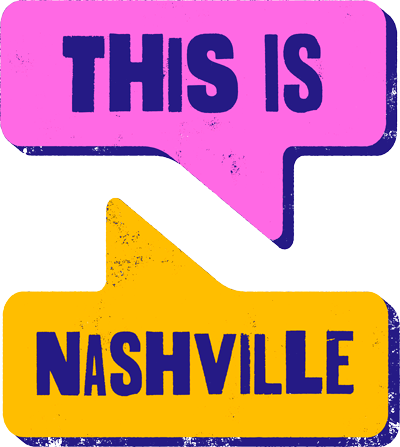
The Metro Public Health Department has widened access to the monkeypox vaccine now that it’s giving smaller doses. Federal officials recommended stretching vials to extend the country’s limited stockpile, but it took a few weeks for Metro to make the switch.
At Metro Health’s first event Monday night, nearly 282 patients received their first dose by appointment, including Del Ray Zimmerman, the director of LGBTQ health at Vanderbilt University Medical Center.
“It was a very, very easy process. The nurse who administered the vaccine [was] very knowledgeable, answered all my questions,” he tells This Is Nashville. “So I would just encourage anyone to utilize the existing resources.”
The interim director of Metro Health, Dr. Gill Wright, says more mass vaccination events will be held “in the near future” now that the supply has been multiplied through intradermal dosing.
More: Understanding monkeypox in Middle Tennessee
Right now, the vaccine is mostly being given to men who have sex with men because that community accounts for most of the new cases. People who are trans or nonbinary and have had multiple sexual partners in recent weeks are also eligible, along with anyone being treated for HIV.
Monkeypox is primarily spread by skin-to-skin contact with an active rash. Infectious disease experts say the outbreak does not seem to be moving much through more casual contact.
“We really have not been seeing transmission from inanimate objects or fomites, so sharing pens or door knobs or sitting in a chair in a doctor’s office waiting room. It really does take that significant skin [to] skin contact,” says Dr. Sean Kelly, infectious disease expert at Vanderbilt’s HIV clinic. “So I think knowing that can help a lot of people you know realize what their risk factors are in a daily basis.”
Helpful resources:
- A vaccine in Nashville: Call Metro Public Health at 615-340-5632 for an appointment
- A vaccination event: Watch MPHD’s social media for signup links
- A primary care doctor experienced in diagnosing monkeypox: Call 615-936-3879 or email [email protected]
Even as monkeypox is spreading more slowly than feared, with just 212 monkeypox cases across Tennessee confirmed by the Centers for Disease Control and Prevention, key groups are concerned that the response has been inadequate and led to further stigmatizing the LGBTQ+ community. Public health agencies have struggled to balance broad public awareness and alerting those most at risk who are eligible to receive the limited supply of vaccines, which are effective even after someone is exposed to monkeypox.
“It’s almost like it’s being kept close to the chest,” says Desirèe Arista, vice president of health equity and inclusion for Nashville-based Revive. “The concern is just getting quick access to the meds that can help shorten the length of time that you’re suffering from the pain of it.”
While the risk is concentrated currently, the virus has been known to spread through less intimate contact. The CDC warns especially of handling bed linens used by someone with an active rash.
But Brenda Waybrant, co-founder of ROC Music City, which advocated for hospitality workers during COVID, says there’s a total lack of concern by many employers.
“We know that when people in labs handle monkeypox, they are donned up in personal protective gear. And it just blows my mind that we’re being told to keep our heads down and go to work,” she says.
Waybrant says her biggest concern is for the financial health of waiters or hotel workers who contract the rash and then have to take unpaid time off since clearing the scabs completely often takes a month.
As of Thursday, Metro Nashville had 108 monkeypox cases, though nearly half had already recovered.
WPLN’s Rose Gilbert contributed to this report.


